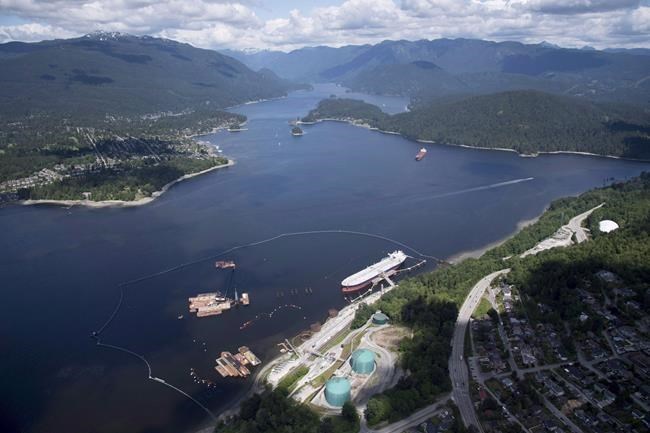 The impression left after a close read of the court decision that sidelined the Trans Mountain pipeline project was that things could not get any more confusing.
The impression left after a close read of the court decision that sidelined the Trans Mountain pipeline project was that things could not get any more confusing.
That impression is wrong. Friday’s “Backing Up to Move Forward” announcement on the pipeline suggests a whole different layer of complexity is at hand.
Federal Natural Resources Minister Amarjeet Sohi said the National Energy Board has been instructed to reconsider the pipeline expansion to take into account the increased marine traffic and the impact it might have on the southern resident killer whales.
That was one of two issues the court cited in voiding the approval of the project. The other one — Indigenous consultation — is also subject to a re-do, coming up shortly.
At first glance, the federal cabinet’s move is understandable. The court found two parts of the process flawed. The government’s solution is to order the board to do those parts over again.
But it’s a lot more complicated than that. The court ruling is almost incomprehensible in describing the problem it had with the review of marine-traffic impacts. And a lot of the confusion stems from the fact the NEB’s legal manoeuvre on the marine-traffic question is even more incomprehensible.
It almost defies explanation, but the essential sticking point for the Federal Court of Appeal was that the NEB considered marine traffic impacts extensively, just not in the right legal context.
The last 80 pages of the 405-page report are about “project-related increase in shipping activities.”
It has exhaustive detail on every aspect of marine shipping, including “cumulative effects on the southern resident killer whales.”
It not only considered marine shipping in detail, it pronounced that the shipping increase related to the project “is likely to result in significant adverse effects to the southern resident killer whale.”
So the idea that the NEB didn’t consider marine shipping is baffling. It devoted an entire chapter to it. It mentioned the potential impact on killer whales almost 100 times.
The explanation — if that’s the right word — is that it did so under the general provisions of its legislation, but not specifically within the scope of the pipeline project itself.
The findings were that more tankers would threaten the whales. But tankers were deemed to be outside the project’s scope. Therefore, the project would have no adverse effects.
The only thing that’s clear from that absurdity is that plain language has been suffocated in the bureaucratic approval processes that weigh down projects.
Requirements to consider everything under the sun are so comprehensive, they collapse under their own weight. The court verdict and the NEB decision create a black hole from which no light of understanding can escape.
The NEB decision came out in May 2016. The court decision was released three weeks ago. The re-do is being conducted under vastly different circumstances, given all the other developments.
Canada now owns the pipeline. As a cabinet minister, Sohi is effectively on the board of directors of the company that is waiting for re-approval of the project.
So he noted that the court decision was “obviously disappointing, but by no means insurmountable.”
And he found a quick and easy way to explain all the problems — it’s all Stephen Harper’s fault.
He said the review process “was created by Harper Conservatives and it failed before the Liberals took power.
“We inherited a flawed process from a previous Conservative government.”
The Trudeau government has taken steps to fix all the Conservative-induced problems, shareholders will be pleased to know, and Friday’s move, he said, was an “important part of a plan to move the pipeline project forward in the right way.”
The conundrum remains: The NEB said tankers are a threat to orcas. But tankers aren’t part of the project. Therefore, the project isn’t bad for orcas.
Explaining that away will involve stressing that Ottawa is so committed to the endangered orcas that any adverse impacts will be rectified. And the pipeline means a few hundred more ship movements a year in a strait that already has 24,000 a year (1,200 of them tankers). It won’t make much difference.
Tough sell. But as the minister said, “by no means insurmountable.”



